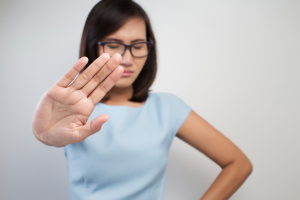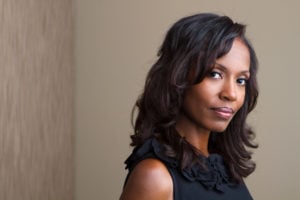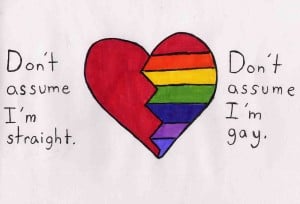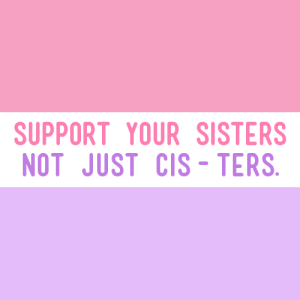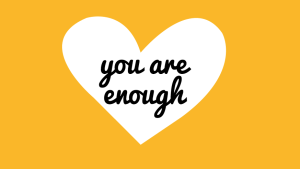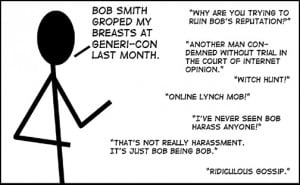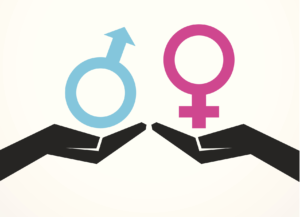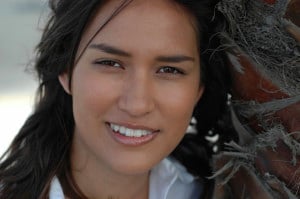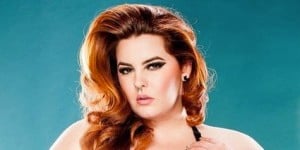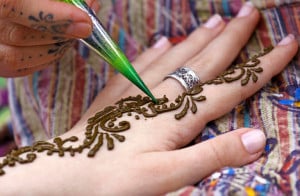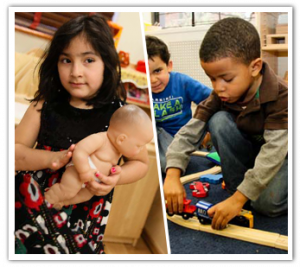Content note: Discussion of sexual violence.

Source: Unsplash
It wasn’t until I was 19 years old — when I began to follow feminists of color on Twitter, especially Black and Indigenous women and femmes — that I began to have some clarity on how rights are routinely denied.
It was at 19 that I started proudly calling myself “femme,” declaring my commitment to the queer and trans siblings that surrounded me, who refused to apologize for daring to wade through their truths.
They were the ones that uplifted everything we were taught to hate — the deviant, the disabled, the soft-spoken, the limp-wristed, the brown-skinned, the ones who are fat and slutty and angry and so much more.
It was through them that I understood the power of claiming myself and the space I take up. Since childhood, I had always been the loud kid who cared about too many things, but I was always silenced and dismissed to the point where I couldn’t imagine what it’d be like to assert myself and my needs and desires.
The logic of justice that I had as a child was diminished by the lack of room that brown, feminine children are given to think for themselves. I wonder how much more justice we’d have in the world if these youth were given the opportunity to sit down and write a description of the life that they deserve.
I might not have been given that space as a child, but I am demanding it now, as an adult.
It is rare that marginalized groups are able to set the terms of our livelihood, of how we want to be treated, of how we deserve to be treated — which is a powerful act of resistance.
I write this with the hope that my belief in my own worth grows every day. And I write this to send a loving reminder to other people of color, especially trans and gender non-conforming people of color, that they are worthy too.
1. I Have the Right to Define Myself
Defining myself is crucial when I am told I do not exist at all. I am erased at every juncture, as trans and gender non-conforming femmes of color are told that they cannot be in the world as they are.
Whenever I fill out any form and am asked to mark “male or female,” I am told that I have to pretend to be someone else to access services. Whenever I am misgendered, whether unintentionally or otherwise, I am told that the world has no room for me because it has been deeply conditioned with Eurocentric notions of binary genders.
Sometimes, people murder us to remind us that we’re not allowed to exist.
Jennifer Laude was murdered in 2014 at the age of 26 by a U.S. Marine named Joseph Pemberton when he discovered that Jennifer was assigned male at birth. Pemberton was engaging in sex with her and testified later that he felt “raped” when he saw her genitalia.
In 2013, Islan Nettles was murdered at 21 when James Dixon felt he had to restore his manhood by killing her.
When trans women and femmes live their truths, they are snuffed out so that they don’t destabilize the identities of others.
So when we claim the right to define ourselves — when we make the choice to not let anyone but ourselves narrate our identities and our bodies — we can begin to envision a world beyond the violence we currently face.
We deserve a world that respects, protects, and loves us fiercely.
I define myself as a non-binary, gender non-conforming Vietnamese femme. I come from a long lineage of Vietnamese femme warriors, who have fought for self-determination for millennia on both international and personal scales.
I reject the idea that institutions can name me for myself — I will not be told that I am “male” or that I was “born a boy.” I refuse to be told that the body I am in can be defined by science.
My body and the identities that I hold can only be determined by me.
2. I Have the Right to Reject What You Consider Respectable
All people of a marginalized group are asked to water themselves down for the comfort of others. But when you hold multiple, inseparable identities, the demand for a respectable image is even greater.
As a person who is racialized most of the time as Asian American, I am expected to conform to the model minority myth — a myth that not only harms Asian Americans but harms all people of color, especially Black and Indigenous folks.
So rather than being the Asian person that makes white folks comfortable, I’d much rather be the Asian person that threatens the fabric of white supremacy.
If I can weaponize my identity against the state, I will always choose to do so.
Similarly, I am asked to be form of transness that is easy to digest, especially for those who can barely conceive of anyone being neither man nor woman. I’m not interested in marketing my journey as moving from manhood to womanhood, having overcome many obstacles along my path — this is the narrative that feeds cis people‘s pity.
I refuse to have my narrative easily packaged.
Instead, I want to be the kind of trans person that is feared. I want to reclaim the idea that trans people are strange, dangerous, and out to get you.
I want to be that kind of Vietnamese trans femme. I’m not about that assimilation shit.
I don’t want my identities to be accepted. I want my identities to be a site of resistance, a force that makes my dreams into realities.
I want people to understand that my identities are connected to my politics of bringing utter destruction to the American settler state and its power structures.
The reason why this is so critical is because marginalized groups so often feel like they have to prove themselves worthy of a structure that was made to hurt them in the first place. We shouldn’t ever have to be a polite and pliable version of ourselves. And we don’t have to continue living under a power structure that hates us, either.
3. I Have the Right to Refuse White Supremacist Logic
European and American colonialism doesn’t just result in the theft of land and the physical abuse and genocide of primarily Indigenous and Black folks. It doesn’t just equal violence against the natural environment and pollution of marginalized bodies.
Colonialism also affects how we think — how we come to know and understand certain ideas.
When the way we think is determined by the oppressor, it can be hard for us to reach the possible solutions that lie beyond the logical framework set out for us.
One example of this is stressing of rationalism within social justice spaces. Many of us consistently limit ourselves and our political actions by telling ourselves that we’re being too outrageous or radical.
When we discard the idea of prison abolition, for example, because we think it’s not rational, we willingly deny ourselves forms of justice that are not violent like incarceration is.
I have the right to reject logics given to me and dream.
I want to dream to the point where I question everything I know about myself and the world. I want to dream so big that relationship to myself, my environment, my chosen family, and my ancestors shift in unknown ways.
I want my dreams to be a reminder to myself and others of the world we deserve.
4. I Have the Right to Change My Mind
Like everyone else, I’m a complicated person. I may change and grow. When I was 17, I thought I was a cisgender, gay man. At present, I find that to be untrue.
I now don’t identify with any binary gender and I call myself queer rather than gay.
But I do not reject or shame the person I was at 17.
I see that 17-year-old as just another manifestation of me — making it through the world trying to figure shit out. I was just as valid then as I am now.
The mainstream narrative about queer and trans people is that they are “born this way” (cue Lady Gaga).
Many trans people reject the way they may have presented and their given name. They might treat those past identifications as something to be forgotten. And this makes sense since many trans people have dysphoria and feel pain about their bodies and their identities.
But reaching at least a comfortable place with their body and self is something that trans people deserve.
However, this mainstream narrative doesn’t take into account the trans people who don’t feel like they need to change their bodies to be considered “trans enough.” It doesn’t take into account non-binary people who are not man or woman.
While I have no plans at the moment to take hormones or undergo surgery, that may change in a few years. In fact, that may change in a few months — the 17-year-old me never expected to identify as non-binary.
I embrace the past, present, and future versions of me and love them all deeply.
5. I Have the Right to Claim Resources that Should Have Been Mine
I have a confession: I love to steal — meaning, I love to take what’s mine.
Given that all kinds of things are denied to me because of my race, gender, sexuality, politics, or any combination of those facets of me, I am simply taking the rightful redistribution of resources into my own hands.
As such, I should be allowed, if not encouraged, to ask for compensation for the forms of labor I provide, whether that be emotional, educational, artistic, or otherwise.
In fact, I should be being paid more than those who may share less marginalized identities because money naturally flows in directions that feed disparity.
It is controlled by people who are put in power through power structures that look most favorably upon white, thin, non-disabled, wealthy, cis, straight men.
I already work every day for free anyway. I’m already consistently educating people for free daily about the existence of non-binary people and on my experience as a Vietnamese femme. I am already delivering all of the lessons that America deliberately forgot to teach people.
Money is one tangible thing that can be used to support marginalized people. It needs to be used more often especially by settlers of “America” to support Indigenous and Black resistance efforts and survival.
6. I Have the Right to Reject the Idea that the Settler State Can Give Us Our Rights
My personal rights are different from the rights that we have or don’t have under the state. Many of us seek to gain more status through the government by asserting our rights. But how might this logic hurt more than help?
In the American contexts, for example, demanding for rights and recognition from the government is contradictory because America is a settler state. It has a government that formed through the past and present displacement and genocide of Indigenous people and the enslavement of Black people.
The American settler state’s very existence goes against the right of Indigenous people to have their lands decolonized and unoccupied.
We must refuse to accept rights that come at the expense of Indigenous people.
Rather than imagining our collective future progressing by reforming the state, we could instead be envisioning our world without the state. What worlds could we build when we are not limited by the so-called rights that state might give us?
***
My personal rights are meant to be examples of how we can go beyond the frameworks of knowledge that we are comfortable with.
Much of what we know about ourselves and our world is through knowledge that was delivered to us through oppressive systems. Likewise, much of the way we advocate for ourselves is limited the scope of such knowledge.
By taking ourselves beyond what we conventionally know about gender, race, sexuality, resistance, and the state, we open ourselves up to endless possibilities.
[do_widget id=’text-101′]
xoài phạm is a Contributing Writer for Everyday Feminism. They are a Vietnamese femme. They are tender and dangerous. They love mangos. They have places to be and people to scare. Read their articles here.
Search our 3000+ articles!
Read our articles about:
Our online racial justice training
Used by hundreds of universities, non-profits, and businesses.
Click to learn more





